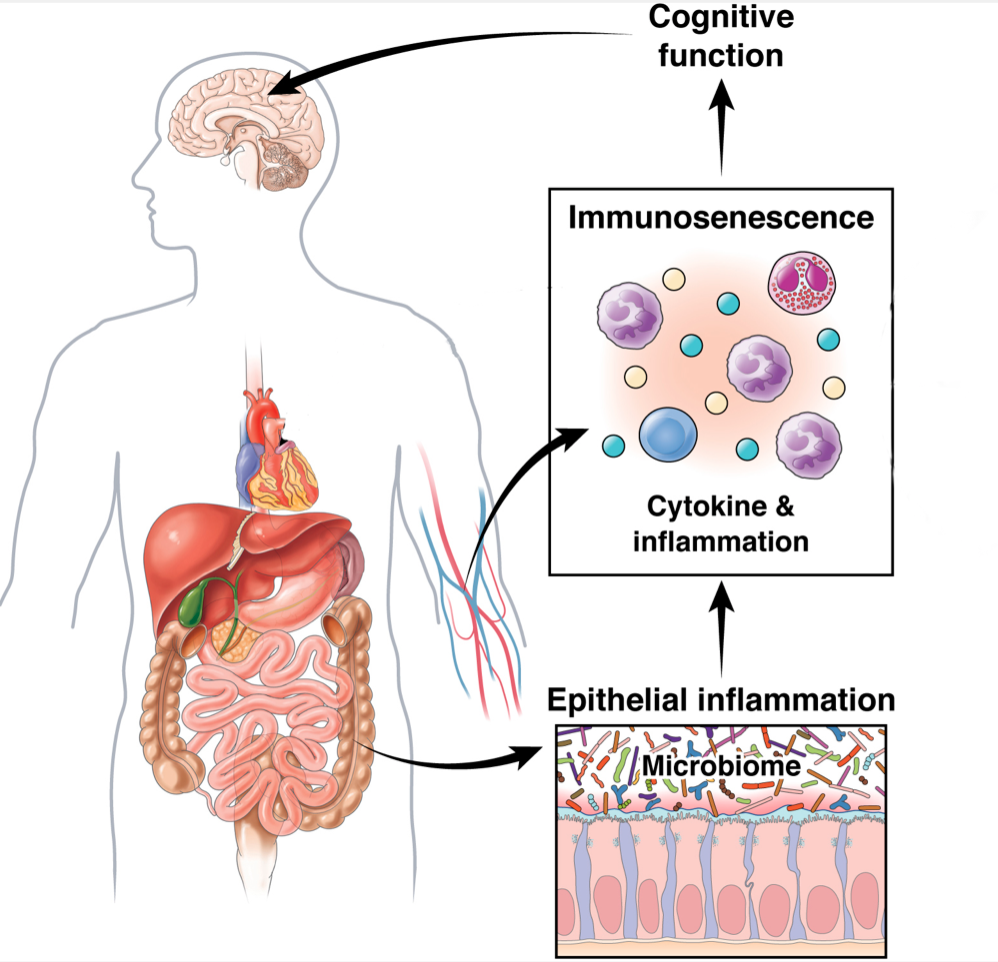Gut Brain
The concept of the “microbiota-gut-brain axis”, which originated from behavioral studies in microbiome-reconstituted mice, has advanced to current research that supports the microbiome may be responsible for some of the most devastating neurodegenerative disorders, including Alzheimer’s Disease (AD). This is underscored by the fact that AD pathogenesis has been linked to chronic bacterial infections as a possible etiology. Recent studies performed by members of the PMD have interrogated this connection among the intestinal microbiome and identified significant changes in the abundance of certain taxa in AD patients. Moreover, increased proportions of pro- and reduced proportions of anti-inflammatory bacteria in the intestine are associated with systemic inflammatory states in patients with cognitive impairment and brain amyloidosis. Thus, one current theory is that AD pathogenesis is closely related to the imbalance of the gut microbiome and may originate in the gut. Our goal is to transition our microbiome association studies with AD more towards causality by investigating how the AD microbiome dysbiosis observed correlates with inflammation and immunosenescence in different elder groups and ultimately to cognitive decline.
